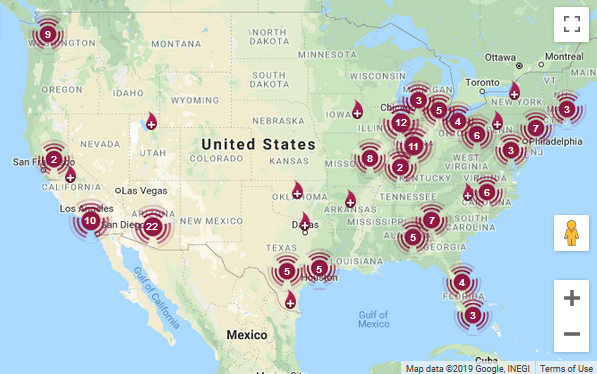You are here
How to Donate Cord Blood
Why donate cord blood?
The term "cord blood" is used for the blood remaining in the umbilical cord and the placenta after the birth of a baby. Cord Blood contains stem cells that can grow into blood and immune system cells, as well as other types of cells. Today cord blood is often used as a substitute for bone marrow in stem cell transplants. There are over 80 diseases treated this way, including cancers, blood disorders, genetic and metabolic diseases.
Cord blood donation costs the parents nothing, but can give birth to hope for a patient in need.
What is cord blood donation?
The mother signs an informed consent which gives a "public" cord blood bank permission to collect the cord blood after birth and to list it on a database that can be searched by doctors on behalf of patients. The cord blood is listed purely by its genetic type, with no information about the identity of the donor. In the United States, Be The Match maintains a national network of public cord blood banks and registered cord blood donations. However, all the donation registries around the world cooperate with each other, so that a patient who one day benefits from your child's cord blood may come from anywhere. It is truly a gift to the benefit of humankind.
Where to donate.
 Most public banks only work with selected hospitals in their community. They do this because they need to train the staff who will collect the cord blood, and they want the blood to be transported to their laboratory as quickly as possible. A parent who wants to donate should start by finding public banks in your country.
Most public banks only work with selected hospitals in their community. They do this because they need to train the staff who will collect the cord blood, and they want the blood to be transported to their laboratory as quickly as possible. A parent who wants to donate should start by finding public banks in your country.
If your country has public banks, contact the one closest to where you will give birth and follow their instructions.
In the United States we provide a searchable map of all the donation hospitals that are currently collecting for public banks.
These US banks will accept mail-in donations:
- Cord for Life (800-869-8608) - accepts cord blood donations if you register by week 34
Plan ahead!
The majority of programs that accept cord blood donations require the mother to sign up in advance. For the safety of any person who might receive the cord blood donation, the mother must pass a health history screening. And for ethical reasons, the mother must give informed consent.
In the united States, Be The Match requires mothers to sign up by the 34th week of pregnancy. There are some hospitals that have dedicated collections staff who can process mothers at the last minute when they arrive to deliver the baby.
